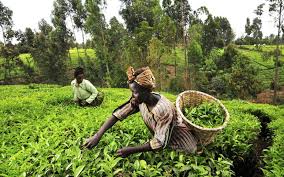Learning Outcomes:
1.Define and explain the principles of sustainability in a global business environment.
2.Analyse and compare how a range of organisational entities articulate
values for sustainability in their vision-mission statements, and implement strategy for sustainability
3.Critically reflect on a contemporary sustainability challenge and how this
challenge is being addressed by organisations
4.Synthesise learnings from an extended literature review, and analysis of
organisational approaches to sustainability challenges to create a proposal
for a sustainability project. Course Learning Outcomes- 1-2-4 – see list below
MGT-613 Leadership For Sustainable Futures Assignment-Laureate International University Australia.

Context:
Now that you have completed:
- a literature review and brief research paper (assessment 1),
- collaborated with a consultancy team to develop a ‘green’ discussion paper and oral presentation for a project proposal focused on one SDG within an organisational context (assessment 2);
- this is your opportunity to bring together all of your learnings and reflection on the process
- together in a more reflective summary ‘green’ discussion paper (assessment 3).
You should reflect on the individual SDGs and organisations considered by individual team members and the one SDG and organisation selected by the team. Consider the different SDG challenges, organisations and industry sectors to pull together the threads of your learning for this subject, to consider the path forward for organisations in the 21st century. Consider at least three scenarios for the industry sector and organisation you choose. Include yourself in the scenarios. What is your role? What action will you take? What Project proposals will you recommend based on the evidence that you have researched, interrogated and interpreted? So what? Explain the significance of your learning and recommendations.Ensure you provide credible evidence to support your argument, including a range of academic articles from within the Laureate Library.
MGT-613 Leadership For Sustainable Futures Assignment-Laureate International University Australia.

This assignment develops your graduate attributes (employ ability skills), especially 1, 2 and 4 as articulated in the MBA Program Learning Outcomes.
Review models of ‘green’ discussion papers before commencing this assignment.
As a discussion paper, you should at least present three scenarios/ options for action, and then recommend action for your preferred option, underpinned with evidence from your research papers.
Your discussion paper should include:
1.Cover page with title, name, student ID (access via Student Hub forms)
2.Executive summary ( tell me the explicit key points and recommendation in your paper)
3.Introduction to the SDGs considered by individual team members; the one SDG and organisation/ industry sector for your focus.
4.Background– summary of critical literature (synthesise reviews already completed); the SDG; and organisation context.
5.Discussion: present scenarios/ options for action (at least three)
6.Conclusion: One option for action
7.Recommendations: to implement the option- what-why-how-who-when-milestones? Limitations of your paper? More research pathways?
8.List of References (APA 6th ed. style. See the Academic writing Guide; access via Student Hub
9.Appendices
WORD COUNT for sections 3-7 = 2,000.
NOTE: Failure to cite references from within the subject modules and the Laureate Library will result in automatic failure. You may also use additional relevant resources.
Congratulations: You now can write a short green ‘discussion’ paper, as an individual, and in a group
setting.
MGT-613 Leadership For Sustainable Futures Assignment-Laureate International University Australia.

1.REFLEXIVE PRACTICE:
– Reflect on their practice as leaders in their context with respect to the ethical practice and standards they adhere to and how these are represented an lived through their decision-making practice and management/leadership of their team.
2.CRITICAL ANALYSIS:
– Critically apply business analysis, data management and diagnostic problem-solving skills in order to support management decision-making
3.LEADERSHIP IDENTITY:
– Develop and articulate an understanding of who they are as a leader in their field, stemming from their own personal history and that of their organisation, discipline area and cultural factors,reaching to who they aspire to be with regards to innovating their future
4.RESEARCH SKILLS:
– Select and apply a range of appropriate research methodologies to a diverse variety of applied management/leadership tasks
5.CREATIVE SOLUTIONS:
– Critically analyse problem situations to uncover the complexities of the issue at hand, and generate and evaluate a range of creative solutions to resolve the issue
6.COLLABORATION:
– Engage in 360-degree collaboration with peers, direct reports and senior management as appropriate to achieve a performance outcome, allowing leadership to move around the group as bet fits the outcome
7.TEAM LEADERSHIP: – Lead a team through complex situation with uncertain information and outcomes,
maintaining the buy-in, commitment, loyalty and integrity of the team
8.INFLUENCE SKILLS: – Articulate arguments to influence a range of diverse stakeholders utilising a range of communication media and medium as appropriate to achieve the desired outcome
9.CULTURAL SENSITIVITY: – Demonstrate sensitivity to cultural issues and minority interest to ensure a fully diverse range of opinions and understandings are considered when tackling complex issues, particularly of a global nature
MGT-613 Leadership For Sustainable Futures Assignment-Laureate International University Australia.

10.ETHICS: – Practice the art and skill of leadership being the ‘best for the world’ in addition to striving to be the
‘best in the world’
11.ADAPTIVE STRATEGY: – Demonstrate the ability to integrate management techniques to aid planning and control in a changing environment



